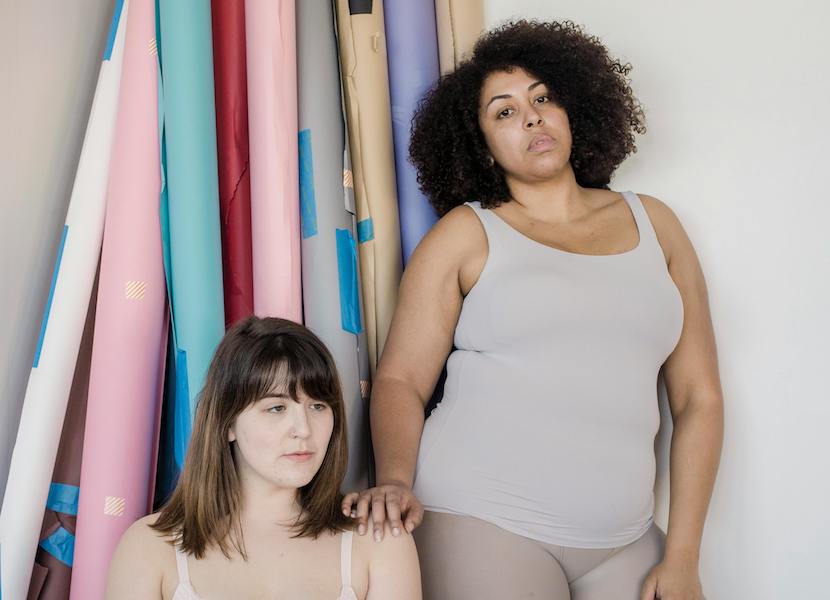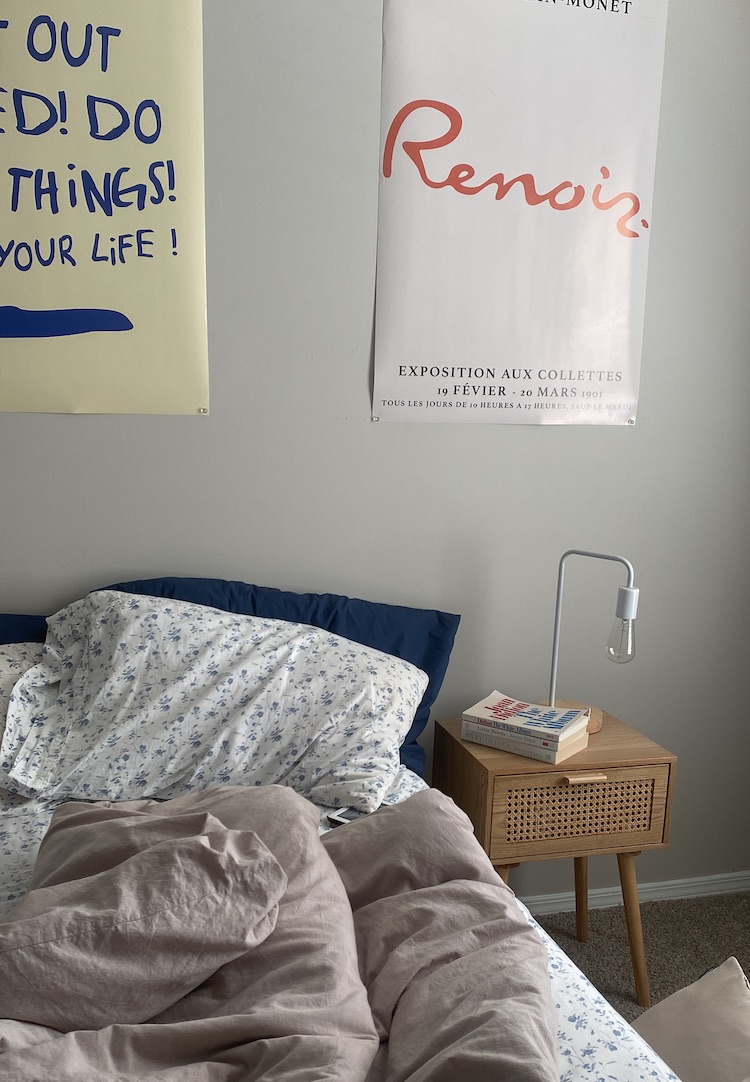A pleasure coach debunks some of the common myths about sex
Words by Gabrielle O’Hagan
Start taking notes.
The sheer number of sex-related misconceptions is pretty mind-blowing. If I compiled all the sex-related myths I’d ever heard, I’d have a fantasy/sci-fi book with enough twists and turns to rival a collection of Greek mythology. The difference is that we know the adventures of Perseus and Hercules aren’t real, and for that reason, they’re harmless fun.
But when it comes to our sexual and reproductive health, you don’t really want to be getting things wrong. I admit I’ve succumbed to my fair share of sex-related myths. Sex was never really a dinner-table topic in my household, and because I went to a Catholic girls’ high school, it wasn’t discussed there either. I relied on my girlfriends, Dolly magazine and Dr Google to keep me informed. It’s safe to say that none of these were exactly peer-reviewed sources.
For more sex advice, head on over to our Life section.
Eventually, as I learned how to distinguish a reputable source from a non-reputable one, I began to shed some of these beliefs. I spoke with actual doctors and read reliable medical information online, and I started to realise just how naive I had been. Yes, you can still get pregnant if you pee after sex. No, not all labia look the same (the kind of things that’d make any gynaecologist despair).
I can’t blame myself for my teenage ignorance – I never received an education that specifically addressed contraception, preventing and treating STIs, affirmative consent, or how women experience pleasure. But It’s 2022, right? This stuff shouldn’t be revolutionary.
But in the spirit of slaying one dragon at a time, I’m going to table my sex education agenda for the time being and focus on what I can do. With the help of Euphemia Russell, a certified pleasure coach, facilitator, and author of the upcoming book entitled Slow Pleasure, I’ve compiled a list of some of the most common myths about sex and why they aren’t true.
Virginity is a biological state
For a long time, I thought virginity was simple: you’re a virgin, until one day you have sex and you aren’t anymore. But there’s actually a lot more to it than that. According to Euphemia, virginity is a social construct. “It’s just [a] collective concept we inherited,” they tell me. “It has to do with property and ownership of bodies and people, particularly people socialised as girls and women.”
Historically, a woman’s virginity was an indication of her ‘purity’. It’s an old-fashioned idea that still exists today, even though it isn’t based on biology. Yes, we typically associate virginity with the presence or absence of a hymen – but the hymen doesn’t disappear when someone with a vagina has sex. It stretches or tears, and this can happen for reasons other than sex too. The point is, people’s bodies don’t all function the same way, and there aren’t any biological criteria for what makes someone a virgin.
The concept of virginity also doesn’t account for other types of non-penetrative sexual activity. “It reinforces a particular hierarchy to sex, assuming that penetrative sex between a penis and a vagina is the ultimate and only way [to have] sex,” Euphemia says. “So obviously it erases many people’s different ways of experiencing sex.”
The truth is, sex is just an experience – the same as riding a bike or going skydiving. There’s no word to describe the state of your body before or after you skydive, so why is there one for sex? “The idea of virginity can make it feel like it’s something that’s taken from you,” Euphemia tells me. “A lot of young people think they’re giving something away rather than experiencing something for themselves.”
Sex should look and feel like it does in porn
Many people turn to porn to answer their questions about sex, especially when no one’s teaching them about it. Unfortunately, porn doesn’t offer very realistic depictions of sex. “What looks good on camera doesn’t always feel good,” Euphemia explains. “We forget that [the] fantasy is not our own. In a media-dominant society, we can have our fantasies hijacked by other media and believe that [this] is something that we desire.” That’s not to say that all porn is bad, just that it shouldn’t be used as a means of education.
Masturbation is bad/you can masturbate ‘too much’
Masturbation is one of those things that seem bad because no one wants to talk about it. “It’s not normalised [and] it’s not celebrated for people socialised as girls and women,” Euphemia tells me. Without any open discourse to normalise pleasure and masturbation, people feel as though they need to hide their experiences, which then perpetuates feelings of guilt, shame and anxiety.
“I think the major question that people are asking around all of their worries and insecurities around pleasure is ‘Aam I normal? Is my experience normal?’” Euphemia says. “And with masturbation or with sex and pleasure in general, we’re always told [we’re] either too much or too little. And never just like ‘Hey, your experience is one of many and you deserve support while you navigate it’.”
All vulva owners should be experiencing an orgasm during sex
It’s a nice thought, but sadly it’s untrue. The orgasm gap is real. In fact, vulva owners will only achieve orgasm from penetrative sex about 65 per cent of the time. Euphemia says that this is partly because we aren’t socialised to find out what brings us pleasure. This, combined with a lack of understanding of our pleasure anatomy, means that vulva owners often don’t reach orgasm in the bedroom.
But contrary to popular belief, orgasms through penetration aren’t the ultimate goal of sex. “Unfortunately, it does come back to penis-centric sex,” they tell me. “[People think the] penis and vagina should be the ultimate experience of pleasure and sex, and it’s actually not.”
Sex is different for everyone, and it can feel good regardless of whether or not there’s penetration. Focusing on your own pleasure in the moment without stressing about what comes next (or rather, who) might actually give you the chance to figure out what works for you.
Condoms make sex less enjoyable
No, condoms don’t have to spoil the fun. There have been a lot of improvements made in the last few years to ensure that they don’t interfere with pleasure.
“[Condoms] can reduce sensation, but if we explore good options for lubricants… it can still be a very intimate and a very sensitive experience,” Euphemia says. “Brands like Skyn [have] been exploring non-rubber focussed [technology and] have really changed the experience of what condoms can feel like.”
Although there are a lot of sex-related myths out there, it’s important to start addressing them. Because it’s not just about getting our facts right, it’s about dispelling harmful ideas and destigmatising sex.
This article was originally published on May 26, 2023.
Head here to preorder a copy of Euphemia’s book.













